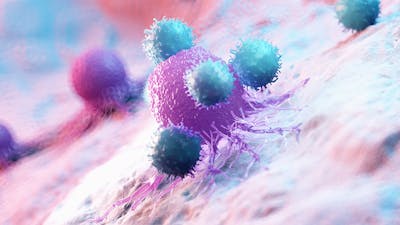Cancer immunologists and biological engineers will develop new biomaterials-based approaches to enable anti-cancer immunotherapies for therapy-resistant cancers

Harvard University’s Wyss Institute of Biologically Inspired Engineering and its collaborating institutions, the Harvard John A. Paulson School of Engineering and Applied Sciences (SEAS), Dana-Farber Cancer Institute (Dana-Farber), and Harvard’s Department of Stem Cell and Regenerative Biology formed an NIH-funded Immuno-Engineering to Improve Immunotherapy (i3) Center. The cross-institutional and cross-disciplinary i3 Center includes world-leading researchers in the cancer immunology and bioengineering fields and will create biomaterials-based approaches to enable anti-cancer immuno-therapy in settings where it currently is limited, such as in myeloid malignancies and solid tumors.
Collaborators have previously made major contributions to the development of checkpoint blockade therapy, neoantigen vaccines, cellular therapies, and therapeutic biomaterials, and have a long track record of highly productive collaborations. This i3 Center is expected to yield major scientific and translational advances in cancer immunotherapy.
